Saint Matthias, Apostle, May 14
He replaced Judas Iscariot
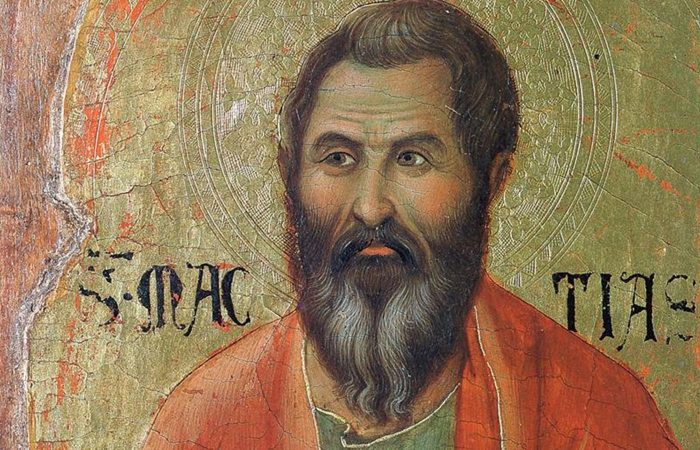
José Miguel Bracero, a priest of the Diocese of Córdoba, offers this article on the figure of Saint Matthias, who replaced Judas Iscariot as Jesus’ apostle and whose feast day is celebrated today, May 14.
Every May 14, we celebrate the feast of Saint Matthias the Apostle, chosen by the Holy Spirit (see 1st Reading, Acts 1:15-17, 20-26) when, by casting lots between Joseph, called Barsaba, surnamed “the Just,” and Matthias, the latter was chosen and associated with the eleven apostles. He replaced Judas Iscariot, the one who sold our Lord Jesus Christ for thirty pieces of silver. Such was the gravity of his sin that, unable to ask for forgiveness, he could not bear the suffering and took his own life.
But Matthias, which in Hebrew means “gift of God,” was already a follower of Christ “from the baptism of John until the day he was taken from us into heaven” (cf. Acts 1:22) and had to be with us “a witness of his resurrection.” Without a doubt, what seemed to be a matter of chance—”the lot fell upon Matthias”—turns out, as always, to be something that has been in the mind of God from all eternity. There is no chance or coincidence, but what some call godliness, because that is what God wanted in his unfathomable will. Of course, his choice was the fruit of the community’s prayer (cf. Acts 1:24).
Just as through the designation of Saint Matthias, God works wonders in our lives in every small event, sometimes joyful, other times sad, and painful. But only in his eyes and from our own faith can we try to understand what, with our limited human reason, we will only be able to achieve in eternal life. Therefore, in the face of the difficulties and sufferings of our lives, we run the risk of straying from the faith, but only God knows us and probes our hearts, so often hardened.
Little is said about his life in Sacred Scripture. We must turn to the Holy Fathers of the early centuries of the Church to glimpse some of his personality traits. From the writings of Saint Clement and Saint Jerome, it is clear that he had been educated in the Law of Moses, an innocent, chaste young man, and well-educated in virtue and knowledge. He was even one of the so-called Seventy-two disciples whom Jesus sent on a mission. Once ordained by Saint Peter, he received the Holy Spirit, along with the other apostles and the Virgin Mary, at Pentecost, a feast we will celebrate next Sunday, May 25th. And there began his apostolate throughout the world, reaching as far as Ethiopia, a country where he is greatly revered.
He was stoned to death—other traditions claim he was crucified—by the Pharisees, irritated by his successes in winning many souls and hearts for Christ and for having proclaimed that the Scriptures spoke of the coming of the Messiah, who died and rose again, and that the Jewish people remained in darkness because they did not recognize Jesus as the true God. His body was buried near Jerusalem, and Saint Helena, mother of Emperor Constantine, recovered it and brought it to Rome, where it is venerated in the Basilica of Saint Mary Major.
We could say that Saint Matthias is a lesser-known apostle than others; he went unnoticed, but he is not lacking in importance for his following of Christ, his apostolic zeal for the conversion of hearts, and for proclaiming the Gospel. Today’s Gospel (John 15:9-17) says, through the words of Jesus: “It was not you who chose me, but I who chose you.” Precisely this apostolic mark is what must move us as well, to proclaim the Gospel in the world, to be true apostles of Christ around us, in a tempting world, increasingly secularized and even hostile to everything that smacks of Christianity, of God, of the transcendent. We are becoming so impoverished interiorly that we only cling to appearances and superficiality, because it seems easier to attain.
But our goal is not for this world, but for eternal life. Our vocation is to immortality, to reach Heaven. A good example for us is that of Saint Matthias, the apostles, and to feel like friends of Christ, and not servants and slaves of the world. For this, we need much prayer, docility to the Holy Spirit, perseverance in our struggles, and rising when we fall. Thus, we will be apostles, we will feel loved, and we will remain in his love, but as Jesus tells us: “if you keep my commandments” and “love one another” (cf. Jn 15:9-17). Pope Emeritus Benedict XVI once said that “although there is no shortage of unworthy and traitorous Christians in the Church, it is up to each of us to counteract the evil they commit with our faithful witness to Jesus Christ, our Lord and Savior.”
What better teacher and model of life, faith, and love than our Mother, the Virgin Mary, to whom we show our love and devotion in this month of May. Through her guidance, may we feel like true Christians, courageous like Saint Matthias, and called to fulfill our evangelizing and apostolic mission in the world: “I have appointed you that you should go and bear fruit, fruit that will abide” (Jn 15:17). And that fruit is love.
Related
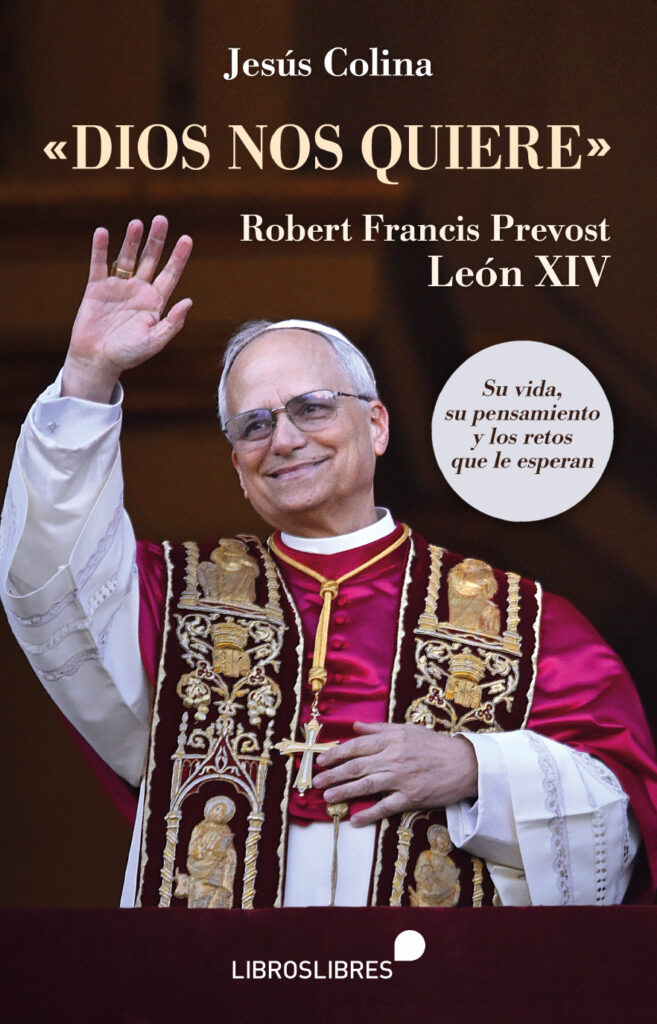
The first book on Pope Leo XIV reveals unknown aspects of his life and thought
Exaudi Staff
14 May, 2025
3 min
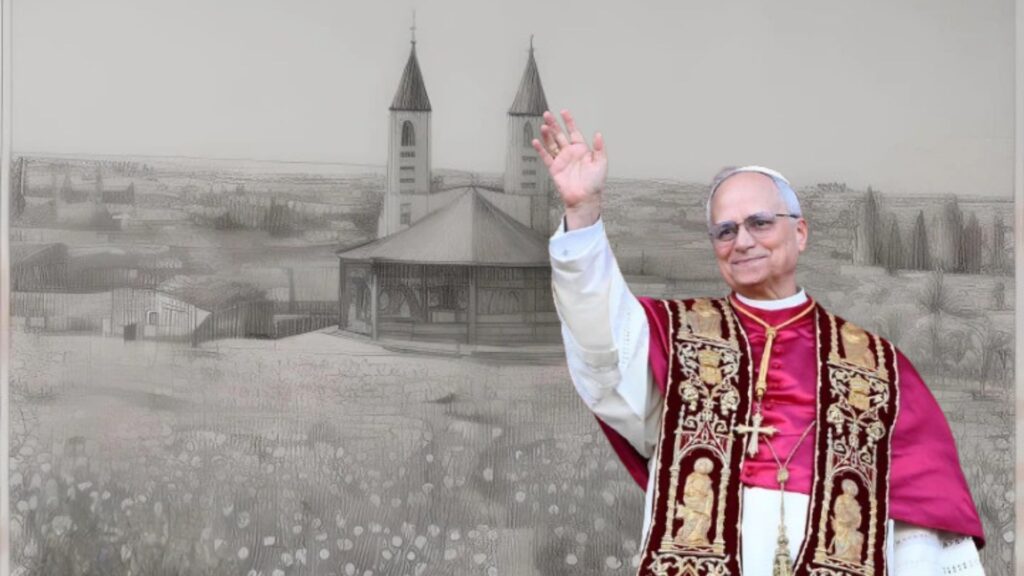
To the Pope of Peace from Medjugorje, the people of Our Lady of Peace
Isabel Durán Doussinague
14 May, 2025
2 min
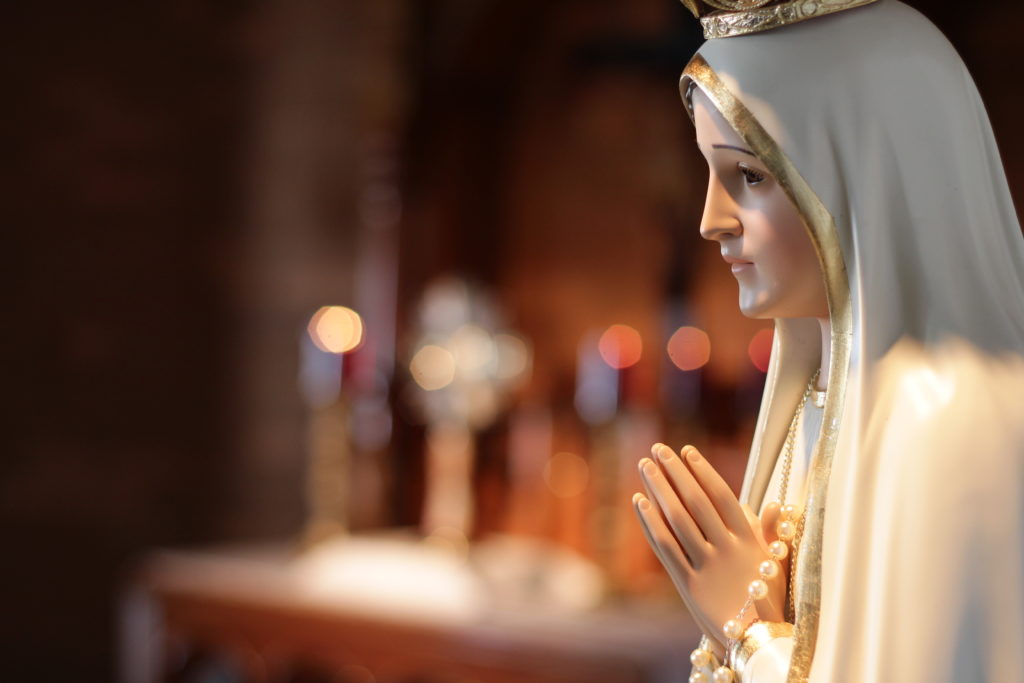
Our Lady of Fatima: The Message of Peace That Continues to Illuminate the World
Rafael Mosteyrín
13 May, 2025
2 min
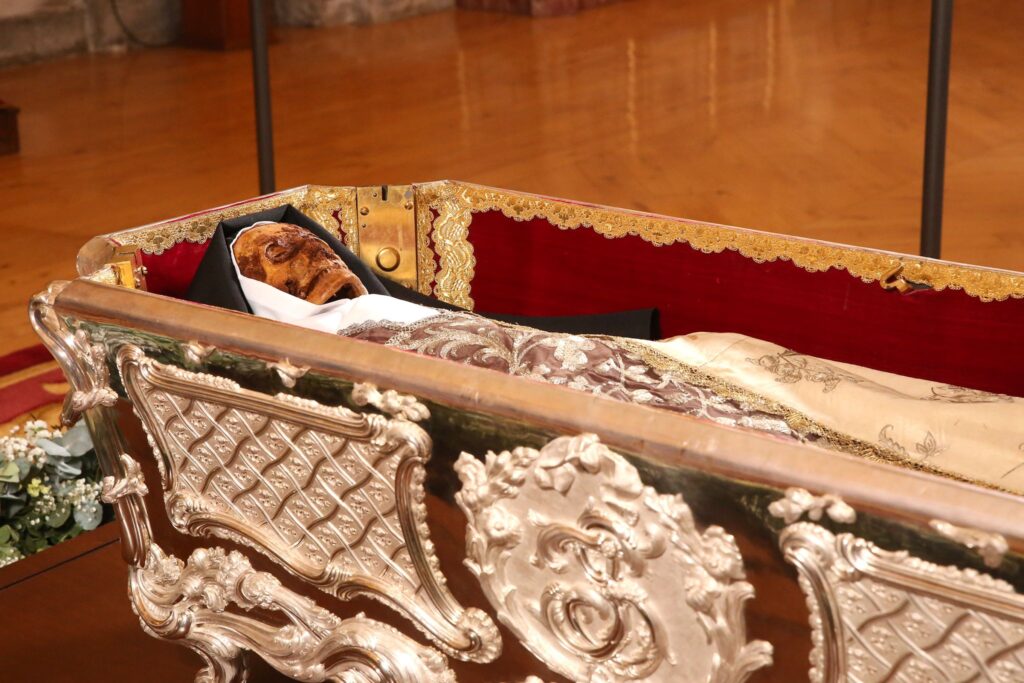
Public veneration of the body of Saint Teresa of Jesus begins
Exaudi Staff
12 May, 2025
4 min
 (EN)
(EN)
 (ES)
(ES)
 (IT)
(IT)

